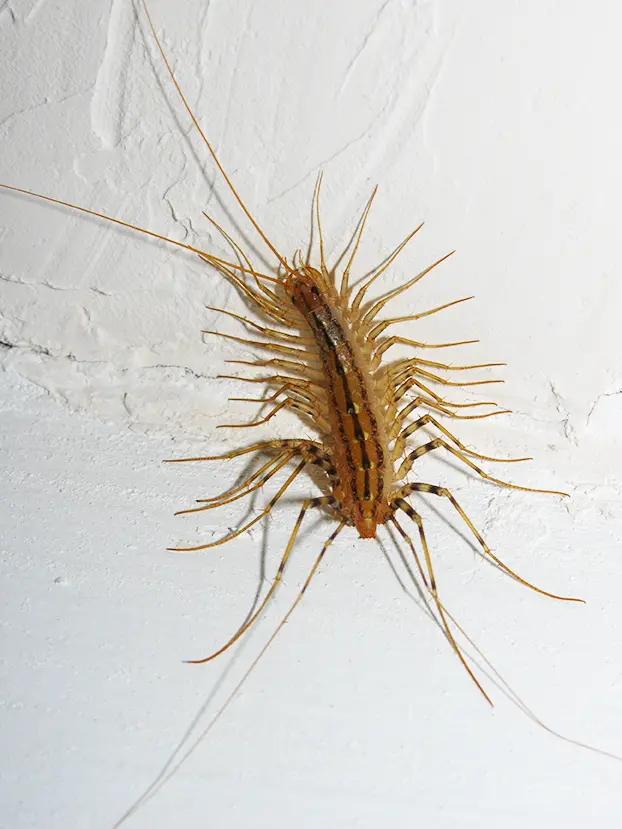The name centipede comes from two Latin words; “centum” which means 100 and “ped” which means foot. Centipedes actually have an odd number of legs—the number can range anywhere from 15 to 177 legs depending on the age and species of the centipede. One of the most common centipedes you’ll encounter in Pennsylvania is the house centipede.
House centipedes are solitary insects, making infestations rare. They don’t build nests or leave traces of their presence. Instead, centipedes will spend most of the day hiding in floor drains or under boxes and will move throughout the night, looking for insects to eat. They find new hiding places all the time.
| Appearance | Centipedes have a gray to yellowish, elongated body with long legs. Their legs are banded with white. |
| Length | 1/2” to 1” |
| Where You Can Find Them Inside | Centipedes prefer damp areas. You can usually find them in basements, bathrooms, crawl spaces, around sinks and tubs, and sometimes in closets. |
| Food | Insects including flies, moths, roaches, silverfish, spiders, and termites |
| Extra Facts | Because their diet consists mostly of nuisance insects, some view centipedes as beneficial bugs to have around. Centipedes do not pose an immediate threat to humans. Female centipedes can survive for several years and may produce up to 150 young. |
Complaints
Aside from their frightening appearance, centipedes on their own are pretty harmless. If, however, you have a large number of centipedes living in your house, it may indicate a more serious pest problem is present.
Solutions
Managing centipedes often starts with managing moisture. By fixing leaks, using dehumidifiers, and running exhaust fans in bathrooms and attics, you can cut down on the moisture in your house and make it less hospitable for centipedes. You should also cut down on interior and exterior clutter. Controlling other insects can also help to control centipedes since insects are their primary food source.

Call Wildlife Enterprises, LLC for help.
If you have a centipede problem, call the pest control experts at Wildlife Enterprises, LLC. We’ll help you to remove pests and seal your house to avoid future problems. Give us a call today to get started.
Dan Lynch is a Certified Commercial Pesticide Applicator with licensing from the Pennsylvania Department of Agriculture. His permitted categories include household and health related pests, wood destroying pests, and public health vertebrate and invertebrate pests.
